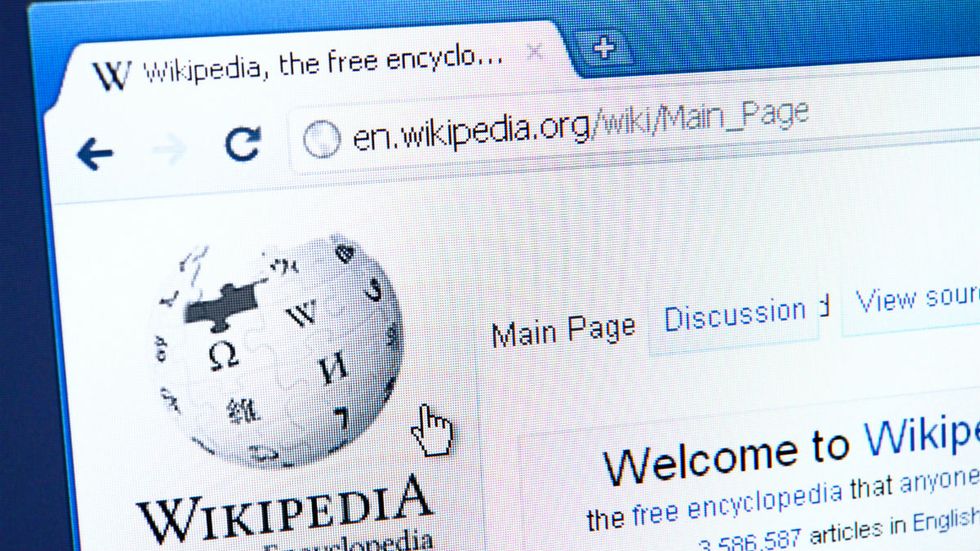
© 2024 Blaze Media LLC. All rights reserved.
I recently attended the first annual conference of the Foundation for Economic Education (FEECon) in Atlanta. Besides being a generally great event for people who care about economic liberty, the conference featured, as keynote speaker, Jimmy Wales, the cofounder of Wikipedia.
It’s unlikely that anyone reading this is unfamiliar with the online encyclopedia that anyone can edit, but it remains fairly easy to underestimate the revolutionary nature of the platform.
I was in college when Wikipedia launched and I still remember the utter disdain with which academics regarded it at the time. The sense was, and still remains in some circles, that without certified and credentialed experts overseeing the process, there was no way to ensure reliability and control for bias.
Of course, today, Wikipedia is regarded as one of the premier sources for human knowledge in the world — collecting in one place everything known by everybody, available to anyone with an internet connection, absolutely free. It exists in over 200 languages and is growing all the time. Empirical studies have found it to be more reliable than the Encyclopedia Britannica. So, how does it work?
It may come as a surprise to learn that Jimmy Wales is a disciple of the Austrian School of economics — the understanding of human action favored by libertarians, classical liberals, and many free market conservatives. Wales was particularly inspired by the work of F.A. Hayek, the Nobel Prize-winning economist who wrote extensively about the use of knowledge in society.
Wales argues, following Hayek, that there are essentially two ways of organizing knowledge. The first, and more traditional way, involves trying to collect all of the relevant knowledge in a society, and gather it into one place where certain gatekeepers — the experts — will use it to make decisions.
Of course, the larger the society and the larger the collective body of knowledge, the more difficult this becomes. And in a modern, complex economy like that of the United States, any attempt to do this effectively and efficiently is absolutely futile.
The other solution, the one on which Wikipedia’s model is based, is to leave the knowledge where it is — decentralized among millions of discrete individuals, and to push the decision-making ability outward, away from the experts, and into the hands of those who possess the knowledge in the first place.
This decentralized method of decision making is not only more robust, but it allows for accomplishments on a far greater scale than any panel of centralized decision makers could imagine.
In this way, Wikipedia not only works, it works better than any conventional encyclopedia ever could. The broad community of contributors self-polices and removes malicious or incompetent actors’ misinformation almost in real time, while simultaneously compiling a reference work so vast that no single person could ever hope to read all of it in a lifetime.
It’s all well and good to marvel at Wikipedia’s achievement, but more important is to extrapolate from the lessons of this one model to gain a greater understanding about our society at large.
Centralized decision making is limited, fragile, and corruptible. Decentralized decision making is only limited by the size of the community, and can withstand even the most violent shocks. Anyone who turns to Wikipedia for their research needs ought to appreciate what we could achieve if we applied the same model to government, to regulation, to technology, and anything that involves people cooperating with one another to solve problems.
Wales’ latest project, WikiTribune, attempts to bring a similar vision to the news, in order to combat the myriad of fake stories, bias, and general unreliability in conventional media. It’s still in the developmental stages, but I, for one, am incredibly intrigued with the possibilities, and look forward to seeing where it goes.
Want to leave a tip?
We answer to you. Help keep our content free of advertisers and big tech censorship by leaving a tip today.
Want to join the conversation?
Already a subscriber?
more stories
Sign up for the Blaze newsletter
By signing up, you agree to our Privacy Policy and Terms of Use, and agree to receive content that may sometimes include advertisements. You may opt out at any time.
© 2024 Blaze Media LLC. All rights reserved.
Get the stories that matter most delivered directly to your inbox.
By signing up, you agree to our Privacy Policy and Terms of Use, and agree to receive content that may sometimes include advertisements. You may opt out at any time.


